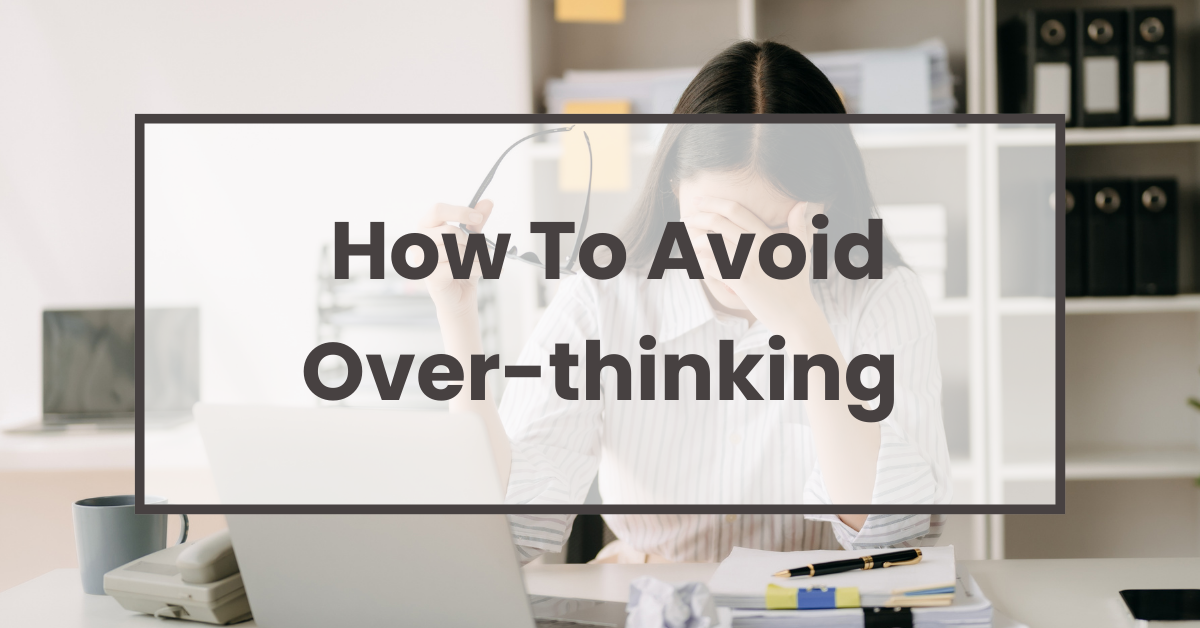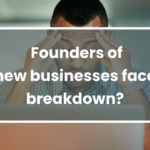In this piece, we’re going to look at the tragic story of an entrepreneur who thought his way to failure, as well as what he could have done to prevent his downfall.
Here’s what we’ll cover:
- A proven strategy that will give you the power to avoid terrible mistakes when you’re pursuing your own goals, whether they’re in business, your personal life, or anything else.
- A revolutionary definition for ‘overthinking’ that will give you a brand new superpower that enables you to completely escape your most destructive thinking traps.
Now, on to the story!
Meet Ryan
Ryan was a talented entrepreneur. He founded a tech startup based on an idea for an innovative app, and all things considered, it was an excellent idea.
This amazing app was just crying out to be launched and to become a roaring success.
Ryan paid meticulous attention to the details of everything, which was so often a strength for him when it came to growing his business.
Unfortunately though, it also caused his downfall. This is actually a great paradox. Our biggest strengths can often end up becoming our greatest weaknesses.
Overwhelmed by what-ifs, Ryan ended up second-guessing a lot of his decisions, resulting in a destructive spiral of overthinking.
Tiny issues led to weeks of paralysis by analysis and considering all the options. This caused major stalls in progress, and Ryan’s team members became frustrated.

His personal life suffered, and even his friends noticed that he had become distant and preoccupied.
Deadlines slipped, and investors grew anxious.
To make matters worse, a competitor launched a similar app out of nowhere. Even though it didn’t have as many features and was technically inferior, it still became a success because it had the first-mover advantage.
A couple of Ryan’s best team members even ended up leaving, poached by the competitor. The level of frustration they had reached made the decision to leave an easier one than it should have been.
Ryan was forced to put the project on hold, and the competitor was free to take all of the market. He felt devastated.
The worst thing about this is that his idea was better on every technical level, and it had every chance of being realised, if only he had been able to get out of his head and properly execute on it.
Instead, this wonderful idea became nothing more than a casualty of overthinking. Ryan’s enormous potential was laid to waste.
The moral of the story is, don’t be like Ryan. You can’t afford to be. So let’s make sure, right now, that you take a different path.
What is Overthinking? (It Might Not Be What You Think!)
In order to not be like Ryan, we must first understand him. What exactly was it that went wrong for him?
We can describe it in one word: Overthinking. That was the cause of his paralysis by analysis.
But the problem lies much deeper, because too much attention to detail is not the only example of overthinking. In fact it’s only one of many types of overthinking – in Ryan’s case, it was analytical overthinking.

There are other forms of overthinking out there, and they are just as dangerous!
For example, you could be a creative type, someone really good at dreaming up wonderful ideas. But if you only stay in your creative mode of thinking, without analysis or execution, your ideas are nothing more than unrealised dreams. This is creative overthinking.
Or perhaps you’re the action type. You could be someone who likes to push quickly towards conclusions, by rapidly scrutinising everything and reaching fast judgements.
Rushing towards decisions, action and execution is great, but without enough creativity or analysis, you can end up missing your best opportunities, or making catastrophically bad decisions. This is overthinking in judgement.
So this is the million-dollar paradigm shift: The definition of overthinking is actually the inability to move into a different area of thinking when your goal requires you to do so.
Ryan had a brilliant creative idea for his app, and he successfully moved from the creative phase into the analytical phase, but when the situation called for the next move in his thinking, which was the move into the execution phase, he failed to meet the requirements of the goal.
For Ryan, his overthinking was the analytical type, but every area of strategic thinking carries with it the risk of overthinking. Where the risk is for you all depends on your own personal thinking style.
Overthinking causes so many of us to leave millions of dollars on the table, in the form of tragically unfulfilled potential. For many of us just like Ryan, it will cause our ultimate downfall.
We all have to stop overthinking, right now. So how can we do it?
How to Stop Overthinking
If you search online about how to avoid overthinking, you’ll find a lot of good advice. Things like mindfulness, meditation, distraction, being grateful, etc. Out of respect for your time, I won’t rehash that information here.
Out of all of them, mindfulness and meditation are the closest to the actual solution, because they encourage you to observe your own thoughts. This is the right start, but we need to use Effective Intelligence to see this job right through to the end.
There are three steps involved for you to successfully conquer overthinking and realise your full potential.
- 1. The first step is to grasp the understanding that the real solution to overthinking is mastering flexibility and agility in your thinking. You need to be able to freely move around your head with the power and grace of a gymnast.
To become truly successful, you need to fully meet the requirements of your tasks and goals, which means being able to move from one type of thinking to another at the exact points you need to. It sounds basic, but it’s not. Hardly anyone is able to do this well!
- 2. The second step is to understand where your personal risk lies. This is different for each person, because we all have our own preferences and biases in how we think. Some of us over-think analytically, some of us over-think creatively, and some of us over-think in the judgement phase.
- 3. Once you are aware of where your own overthinking risk is personally, you can move to the third and final step – pushing forward with the conscious, personally-tailored strategy you need to be able to move yourself into other areas of your thinking when your goals are crying out for it.
Each of us, including you, has what is called a Driving Force in our thinking. Out of all the three strategic thinking types we’ve talked about, we all have one that we naturally prefer – and so often, that is the area of our thinking where we are most at risk of overthinking and destroying our potential.
Do you already have an idea about what type of thinking might be the Driving Force that defines what type of overthinker you are, and where your risk is?








